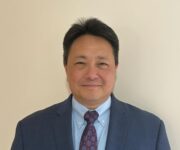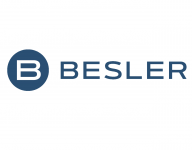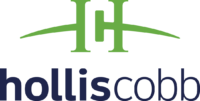As we continue our countdown to the start of the new board term on June 1st, we’re excited to introduce you to the exceptional individuals joining our leadership team. Each week, we’re highlighting one of our new board members—giving you a closer look at the people who will help shape our direction moving forward. Welcome to the Board Souch Young!
- Tell us how you came to a career in healthcare and the path to your current position in your organization.

I initially aspired to become a clinician, but over time, I discovered that my strengths and interests aligned more with the administrative side of healthcare. After college, I was advised to strengthen my medical school application by pursuing a graduate degree. Faced with the choice of returning to New York for a Master of Science or staying in Boston, I chose to remain in Boston and earned an MBA with a concentration in Healthcare Management from Boston University.
After graduation, I began my career as a managed care analyst at a small community hospital, where I helped build the reporting infrastructure for a newly formed Physician Hospital Organization (PHO). This experience laid the foundation for my transition into healthcare consulting. A graduate school colleague recruited me to a large consulting firm, where I spent eight years in the Revenue Cycle Information Technology group, supporting hospitals and health systems nationwide.
My path took another turn when a friend and mentor invited me to help build the Revenue Cycle practice at a boutique consulting firm. We grew the practice successfully, but after the firm was acquired, the new leadership shifted focus to software, leading to the dissolution of the consulting arm.
Once again, that same mentor played a pivotal role. While consulting at Trinity Health, he learned of plans to build an internal consulting team. He recommended me, ensured my resume reached the right people, and that led to my current role with Trinity Health’s Performance Management team, where I’ve been for the past six years.
- What was your moment of truth? Share an event or a decision that became a defining moment in your career.
My defining moment came during the industry-wide shift prompted by the HIPAA mandate and the adoption of Electronic Data Interchange (EDI). As healthcare organizations were required to implement standardized transaction code sets—such as claim statuses, CARCs, and RARCs—it marked a fundamental transformation in the revenue cycle. This moment was a turning point for me: I realized how technology and data could revolutionize the way we operate in healthcare.
With my background in building queries and reports using relational databases, I was well-positioned to harness EDI to track and trend metrics more efficiently and unlock insights from large datasets. What once required manual tracking and complex crosswalks between disparate systems became standardized, automated, and accessible—ushering in the era of Big Data in healthcare.
I was fortunate to be on the front lines of this shift, leading the implementation of the 835 transaction file for a provider organization. This effort required close collaboration with payers and our systems vendor. Since it was uncharted territory for all of us, we approached it as a shared learning experience—testing, troubleshooting, and iterating together. It was both challenging and exciting, and it cemented my passion for using technology to drive meaningful change in healthcare.
- What leadership skill has been most useful?
In my experience, communication has been the most valuable leadership skill. No matter how strong someone is in strategy, technology, or problem-solving, the ability to clearly and effectively communicate can make—or break—their impact as a leader.
- Other than competence in the position, what do you look for when reviewing resumes?
When reviewing resumes, beyond competence in the role, I look for traits aligned with Patrick Lencioni’s concept in The Ideal Team Player. I value candidates who are Humble, Hungry, and Smart—those who can collaborate effectively, show a genuine passion for learning, take initiative, and demonstrate strong emotional intelligence. These qualities often indicate someone who will thrive in a team environment, adapt to challenges, and contribute positively to the culture.
- What book are you currently reading, podcast are you listening to or a series you are binge watching?
I’m currently reading Crucial Accountability by Patterson, Grenny, Maxfield, McMillan, and Switzler. It’s a powerful book on how to navigate high-stakes conversations and hold others—and yourself—accountable in a way that strengthens relationships and drives results. It’s been both insightful and practical, especially in leadership and team dynamics.
- For our early and mid-careerists: What are your thoughts/advice on mentoring and advocacy?
I strongly encourage those early in their careers to actively seek out a mentor. A mentor can offer guidance, share valuable experiences, and help you navigate the challenges of building your career. For those further along in their professional journey, I believe it’s equally important to become a mentor. Mentorship isn’t just about giving back—it’s about keeping the cycle of growth and learning alive. Most of us had someone who took the time to “show us the ropes,” and it’s incredibly rewarding to pay that forward.
I still fondly remember a mentor who spent countless hours teaching me how to use MS Access and helping me understand the logic behind claims data. He, along with many others throughout my journey, shaped who I am today through their generosity and guidance.
I’ll also add that mentoring others often brings unexpected rewards. I’ve found that I frequently learn just as much from those I mentor as they do from me. The exchange of ideas and perspectives is invaluable, and it keeps me growing—both professionally and personally.
- What led you to become an HFMA Board Member/Committee Chair?
I recognized the value of the HFMA Revenue Cycle Conference and the impact it had on professional development and networking. With encouragement from my leader, I decided to get more involved and took on the role of co-chair. After successfully co-chairing the last two conferences, I’ve seen firsthand how rewarding it is to contribute to the organization and support its mission. I’m excited to continue volunteering and look forward to finding new ways to add value to the chapter.
- What do you like to do when you are not working?
When I’m not working, I enjoy spending time with my family, traveling, golfing, collecting comics, and listening to music. These hobbies help me recharge and stay inspired—whether it’s exploring new places, diving into a great story and its artwork, or simply relaxing with some good tunes.


















